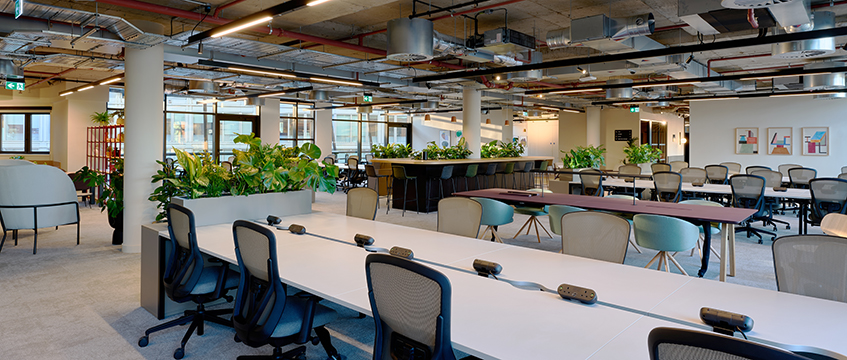What are the opportunities for UK companies in European cities post-Brexit?
I see the current political and economic uncertainty as an opportunity as Avison Young sets about building a disruptive real estate advisory business across Europe.
With the acquisition of GVA in February 2019, Avison Young made a significant investment into the UK despite Brexit. We have subsequently announced an ambitious continental European expansion programme. Brexit does not frighten us. We see it as a short-term consideration while we are building for the long term.
The starting point is our existing presence in the UK, Germany and Poland. Germany remains the largest market by transactional sales, followed by the UK, France and the Netherlands. We are well advanced on mergers and acquisitions discussions in these countries. Indeed, we have recently completed the acquisition of Völckers & Cie Immobilien GmbH Real Estate Advisors in Germany.
I see the current political and economic uncertainty as an opportunity as Avison Young sets about building a disruptive real estate advisory business across Europe.
With the acquisition of GVA in February 2019, Avison Young made a significant investment into the UK despite Brexit. We have subsequently announced an ambitious continental European expansion programme. Brexit does not frighten us. We see it as a short-term consideration while we are building for the long term.
The starting point is our existing presence in the UK, Germany and Poland. Germany remains the largest market by transactional sales, followed by the UK, France and the Netherlands. We are well advanced on mergers and acquisitions discussions in these countries. Indeed, we have recently completed the acquisition of Völckers & Cie Immobilien GmbH Real Estate Advisors in Germany.
Our focus will be on the major European cities initially. We will begin by building a ‘spine’ across Europe linking the main centres of London, Paris, Amsterdam, Frankfurt, Berlin and Warsaw. Dublin will play a key role in this spine given its link to the EU in a post-Brexit world.
Cities drive economies. The impact of urbanisation is regularly articulated, and we are focused on understanding and influencing every aspect of city development in the interests of our clients – whether they be investors, occupiers, landowners or developers in the public or private sectors.
The major cities represent significant opportunity regardless of Brexit and other challenges. The greater Paris region, the Île-de-France, with a total stock of 52m sq m of offices, is the third largest office market in the world after Tokyo and New York. It is also one of the most transparent and organised real-estate markets in the world. It has the biggest GDP in Europe and is the first European market in terms of size of its stock or leasing activity (with on average 2.3m m² take-up annually). It is also the second biggest investment market in Europe. It is attractive to us because of its maturity, liquidity and diversity, and its appeal to cross-border investors.
Amsterdam is located within the Randstad, one of the largest conurbations in Europe with 7.1m people. In addition to the four largest cities in the Netherlands, the Randstad also incorporates Schiphol Airport, Rotterdam-The Hague Airport, and the Ports of Rotterdam and Amsterdam. With English being widely spoken, fantastic communications networks, its central location in Europe and its obvious cultural strengths Amsterdam presents significant opportunity for us.
One city that is clearly benefiting from Brexit is Frankfurt. In 2018, the value of transactions in the city increased by 36% to an all-time record of €10.4bn (£9.3bn), turning Frankfurt into Germany’s hottest market for commercial real estate. In addition, 25 UK-based banks have chosen to move operations and staff from London to Frankfurt.
Berlin is also a priority. Its transformation has been, and still is, phenomenal. Arguably one of the ‘coolest’ cities in Europe, it is also a start-up leader with more than 500 start-ups per year, driven by the city’s creative culture and the influx of young talent. This all translates into a strong real estate market, but also the talent and innovation we are seeking to help drive our European business.
Further east, Poland is currently one of most rapidly growing economies of the EU with a GDP growth rate of 4.4%. Warsaw sits at the heart of this economic growth and is an obvious location for investment and indeed as a stepping stone into markets further east.
Uncertain situations create opportunities for growth, although there are undoubtedly challenges. The relatively weak pound against the euro may bring short-term investment advantages in the UK, but does not assist financial flows in the opposite direction.
Equally, while our plan is to create a joined-up European business, the differing legal, political and cultural backdrops country by country present challenges to ensuring this seamless offer.
Despite these challenges, we believe that there exists enormous potential for businesses looking at Europe as a growth area.
Gerry Hughes is president, Europe, at Avison Young











